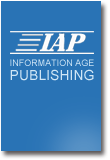
Diversity and Inclusion for Faculty Development
Transformative Approaches
Edited by:
Charline Barnes Rowland, University of Pittsburgh
Tahirah D. Walker, University of Pittsburgh
A volume in the series: Innovative Approaches on Diversity and Inclusion in Higher Education. Editor(s): Charline Barnes Rowland, University of Pittsburgh. Tahirah D. Walker, University of Pittsburgh.
Call for Chapters
For this edited volume, we invite chapter proposals from authors who are engaged in development, delivery and assessment of faculty development programs that support diversity and inclusion. Grounded in research and literature, we are looking for innovative approaches that engaged college faculty in various inclusive teaching and learning models through the process and impact of change.Using international scholar Hockings (2010) core definition: Inclusive learning and teaching in higher education refers to the ways in which pedagogy, curricula and assessment are designed and delivered to engage students in learning that is meaningful, relevant and accessible to all (p. 1), this book will address these questions:
1. How is inclusive pedagogy defined at postsecondary institutions across the world?
2. What do inclusive pedagogy models look like in their design and delivery in supporting college faculty and students?
3. What are some inclusive assessment methods and practices that enable all students to demonstrate full learning success?
4. What are the challenges and opportunities of inclusive faculty development program for embracing future faculty?
We are looking to document inclusive pedagogy models in any discipline, but within the context of improving postsecondary teaching and learning while equitably supporting college students’ academic success (Fink, 2013; Tuitt, Haynes & Stewart, 2016). Consider these additional questions:
• What are actual pedagogical practices within the models that challenged and expanded the basic definition of diversity and inclusion faculty development in the academy?
• How have these models improve the diversity efforts of faculty to engage more students within a safe and collaborative learning environment?
This edited volume will be part of the book series that is published by Informational Age.
Chapter Proposal (due October 31, 2019):
Chapter proposals of no more than 500 words (not including the listing of up to 10 references) are welcome. For multiple authored proposals, please list all authors and indicate a corresponding author’s email.
Chapter Submission (due December 31, 2019):
Authors of accepted proposals will be notified by XXX about the status of their submission and sent chapter guidelines. Full chapters, ranging from 6,000 to 7,000 words in Times New Roman 12, double spaced text, inclusive of title, abstract, manuscript, and references, should be submitted as a Microsoft Word email attachment by XXX. Manuscripts should conform to 6th edition APA style conventions. See Author Guidelines. Graphics and images may be included.
A blind review process of full chapter submissions will be conducted during 2019 (see Projected Deadlines).
Projected Deadlines:
Chapter proposals due: Thursday, October 31, 2019
Notification of invite to submit chapter: Thursday, October 31, 2019
Submission of chapter draft for peer review: Tuesday, December 31, 2019
Peer review comments returned to author(s): Tuesday, March 31, 2020
Receipt by editors of final draft of book chapters: Friday, May 1, 2020
Final book submitted to publisher: Monday, June 15, 2020
Anticipated publication: Summer 2020
Please send all inquiries and/or chapter proposals to Dr. Charline Rowland, series co-editor, at barnesbits@hotmail.com

